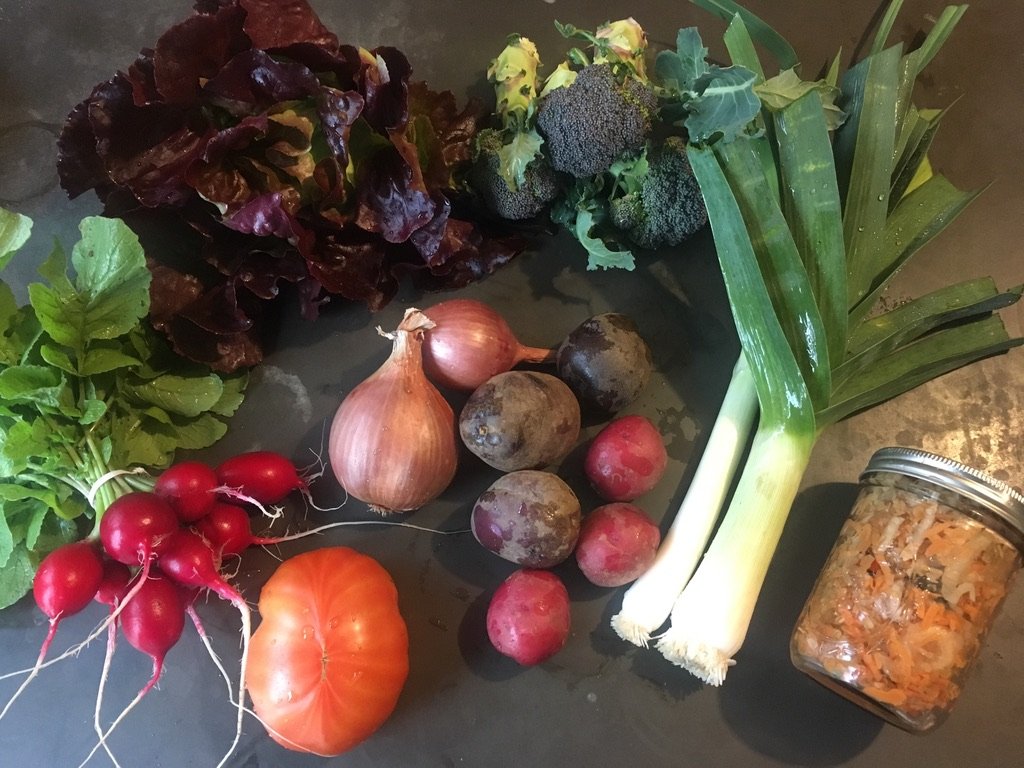October 22, 2019
What's in your share?
Head Lettuce
Radishes
Tomatoes
Broccoli
Red Norland and Blue Potatoes
Shallots
Leeks
Ferment
As I walked down the rows of crops yesterday afternoon, scanning the field and deciding what would be harvested for your shares today, I couldn’t help but feel a sense of frustration at what I saw. As farmers, we do everything we can to nourish the soil and plants so that we can eventually have a successful harvest. Yet, sometimes we intentionally do not do everything that we possibly could.
So far it has been our practice to not spray any herbicides or pesticides on our land. Furthermore, what many people may not realize is that many of these commonly used products are approved in organic agriculture under federal organic standards. One of our main pests in this area most affects those plants in the Brassicaceae family, including mustards and cabbage. For this reason, we do not have the abundant yields of broccoli, kale, and cabbage we were hoping for. Many of the other growers in our area insist that you must spray a certain pesticide called Bacillus thuringiensis, often abbreviated as Bt, in order to grow the above-mentioned crops with any success. And honestly, they’re pretty justified in their reasoning. For as you’ve probably noticed, your shares have not been overflowing with kale greens, broccoli, and cabbage; and this is why.
Bacillus thuringiensis, or Bt, is a naturally occurring bacteria that is one of the most commonly used pesticides used to control leaf eating caterpillars. It is marketed as “one of the safest natural pesticides you can use to control caterpillar pests without harming beneficial insects.” However, Bt not only kills the cabbage-moth caterpillars decimating many of our brassicas, it also kills monarch caterpillars, rupturing their gut-lining and causing them to die. And even if Bt only killed the exact caterpillar eating all our beautiful kale, what is the greater, perhaps unrealized impact of this? Life is a complicated, interconnected maze. When you disrupt one species in this way, another is undoubtedly also hurt in the process.
Our farm is already manipulating nature in countless ways as it is, and we are by no means purists. We built three high tunnels this year alone, and are already dreading the day the plastic from those tunnels is “thrown away.” So everyday we endeavor to make the most responsible choice that we can. At this point we are still committed to trying everything else first, before spraying any herbicides or pesticides. This includes incorporating strict crop rotation, using row cover or protective insect fabric/netting, removing caterpillars by hand, even not growing as much of those susceptible crops, especially when those pests are most abundant.
So we promise to continue to do everything we can to grow you the freshest and most nutritious food possible, without compromising our planet and the other life with which we co-exist, including the monarchs.
